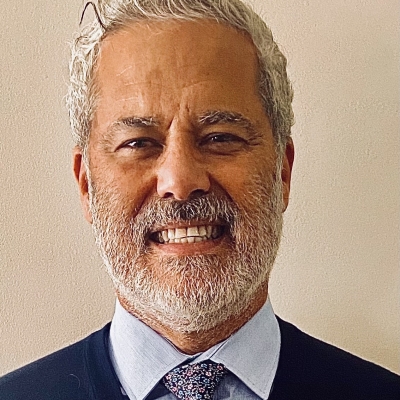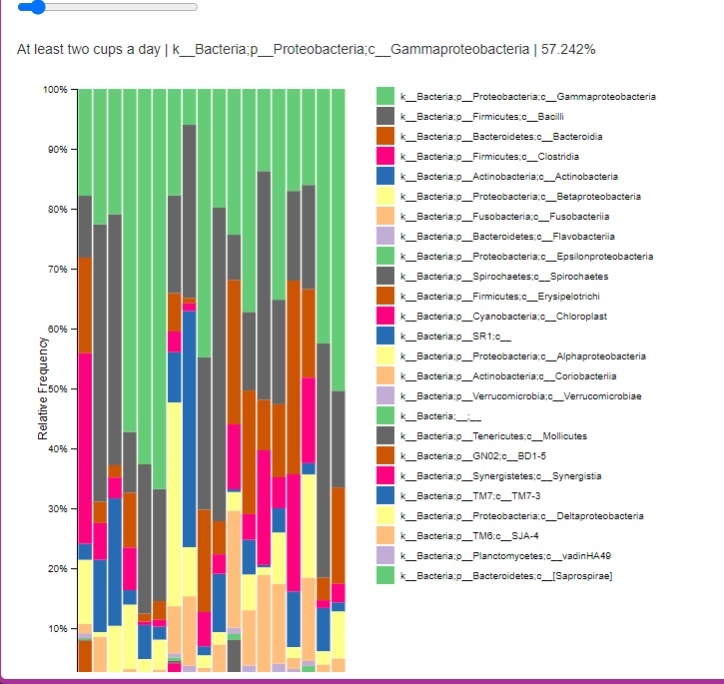
-
A microbial ecologist by training I am interested in the study of microbial soil communities. I am particularly interested in the study of changes in microbial community composition associated with microclimatic environmental gradients. I am also interested in science education research. As program director and PI of research training and STEM education grants I have had the opportunity to develop and implement education and research training models for undergraduate and secondary education. Predominantly undergraduate institutions are a perfect environment to integrate research interests with curriculum and research training. I am particularly interested in implementing pedagogical innovations that include evidence-based methodology, e.g. active learning and course-embedded research experiences.
-
In his 25 years at SUNY OW Dr. Nieto has brought over $4M of grant funding, he has published sixteen peer-reviewed scientific publications, with eleven student co-authors, five peer-reviewed articles on educational research, three instructional material publications, co-edited a book on Art, Biology and Conservation: Biodeterioration of Works of Art, co-authored six phage genome annotations submissions to GeneBank, and submitted 34 abstracts for students’ research presentations. He is the President of the Polytech/SUNY Old Westbury Sigma Xi Chapter, a Research Honors Society, Vice-president of the Metropolitan Association of College and University Biologists, and a Partnership for Undergraduate Life Science Education (PULSE) Fellow, a national undergraduate biology education organization that supports the implementation of the findings of Vision and Change in Undergraduate Biology Education: A Call to Action (2011).
-
BS2400/BS2401: an entry level first semester course, covers the molecular and cellular biology content area including Genetics and Evolution. In 2017 we became part of the HHMI Science Education Alliance(SEA)-PHAGES 10th cohort. SEA-PHAGES is a Course Embedded Research Experience (CRE) sponsored by HHMI SEA. 127 institutions worldwide participate in the program. Since its inception twelve years ago 15,496 actinobacteriophages isolated and 2,969 finished genomes with 2,410 GenBank accessions. At our school we have integrated the CRE into the Honors College section of BS2401 with plans to expand to more laboratory sections in the near future. Since then we have isolated thirty-four new phages using Mycobacterium smegmatis mc2155 as a host, and annotated three new genomes, Rahel, Snazzy .Rahel has already been submitted to National Institute of Health (NIH) genetic sequence database (Genebank accession# MK359348).
- BS2410/BS2411: second semester of the entry-level biology sequence, covers organismic and population content areas including comparative anatomy and physiology of animals and plants. The lecture and lab courses are co-requisites and by design the syllabi for the lecture and the lab are synchronized so that students have an opportunity to apply concepts taught in the lecture through hands-on experience. The laboratory is also a writing-intensive component of the course through the actual laboratory activities, home-works and laboratory reports.
- BS4470 Ecology: is an upper-division requirement satisfying the Population core content area, and it covers all aspects of terrestrial and aquatic ecosystem studies. In the laboratory students work in teams on a research project on forest ecology. This project is part of the Ecological Research and Educational Network (EREN) funded by the National Science Foundation. The goal of the network is to promote global long-term ecological research. Ecology students design research projects using data collected from the permanent forest plots located on campus. The data collected is shared with all the members of the network and is available to the network members for publication purposes.
- BS4474 Microbial Ecology: is an upper-division elective in population biology covering all aspects of terrestrial and aquatic microbial ecosystems. I developed the course in 2008. Students in the laboratory work on a semester-long project studying the microbiomes from environmental samples. As part of the project students collect samples from the field, extract and purify the DNA and then process it using a traditional pipeline including PCR using universal 16S rDNA primers, and Next Generation Sequencing.
- 1995 Ph. D. Biology (Concentration: Ecology, Evolution, and Behavior). The Graduate School and University Center, City University of New York.
- 1991 M.A. Biology. The City College of New York. City University of New York.
- 1984 B.S. Biology (Zoology concentration). School of Biology, University Complutense of Madrid, Spain.
- Microbial Ecology: I am interested in understanding the changes in diversity and functionality of the soil microbiome based on vegetational gradients following small and large scale climatic changes. Understanding ecosystem structure and function are two critical aspects of ecological research. The development of next generation sequencing techniques allows us to estimate community diversity with greater accuracy than using traditional microbiological methods. Forest soil ecosystems are involved in nutrient cycling germane to the “health” of the ecosystem. This project involves undergraduate research students.
- Bioremediation: in the last five years I have collaborated with Dr. Duncan Quarless from the Chemistry Department on a project to develop and test low molecular thiols that mimic natural endogenous thiols that help detoxify metals in living systems such as i.e. glutathione. We have tested this molecule in C. elegans with very promising results with an article publication in preparation. Five undergraduate students have worked in this project and presented the research in a number of undergraduate research conferences.
- Phage Ecology: we are part of the 10th cohort of the HHMI SEA PHAGES program. The program introduces freshman students to research using the Phage Hunting program developed by Dr. Graham Hatfull from the University of Pittsburgh. The aim of the project is to study the evolution and ecology of Actinobacteriophages. In collaboration with my colleague Dr. Christos Noutsos we are developing a line of research on Genomics of these phages. We are particularly interested in studying genome level evolutionary mechanisms in Actinobacteriophages and elucidating their adaptiveness. So far we have isolated 70 different Actinobacteriophages and annotated the genomes of Rahel (MK359348) and Snazzy (MN585991).
-
Fernando E. Nieto-Fernandez, Christos Noutsos, John Kleopoulos, Olubusola Babalola, Belle L. Connaught, Balquees Shafique, Shannon Farnum, Hammad Nawaz, Raymond Catapano, Rita M. Reddy, Jorge Morales, Patricia Roccanova, Shirley Barrera (2021) Complete Genome Sequences of Mycobacteriophages HarryOW and Peeb. Microbiology Resource Announcements 2021 10 (14): e00112-21. doi: 10.1128/MRA.00112-21
Nelson Euceda, Joyce Jahnke, Aileen Espinal, Monique F. Louis, Edan Bashkin, Patricia Roccanova, Abraham Espaillat, German V. Fuentes, Fernando Nieto, and Ruomei Gao (2021) Thioguanine restoration through type I photosensitization-superoxide oxidation-glutathione reduction cycles. Phys. Chem. Chem. Phys., 2021,23, 5069-5073.
Fernando E. Nieto-Fernandez, Christos Noutsos, Jillian Nissen, Yara Abdelsalam, Jessica Ackloo, Navpreet Banger, Hason Chan, Tarana Chittineedi, Isabel Duplessy, Mark Dyce, Daesha Garrison, Jaime Gonzalez, Sandra John, Imanjot Kahlon, Tania Kumar, Adwoa Lewis, Karthik Madhira, Rivka Mullokandova, Nellie Pirzadeh, Iman Raja, Kevin Ram, Ravi Ramdhari, Rita Reddy, Briana S. Saed, Phalan Smith, Steeve Sproul, Jane Thomas, Avia Yossefi, Jorge Morales (2020) Complete Genome Sequence of Rahel, a C1 Cluster Mycobacteriophage. Microbiology Resource Announcements November 2020 Volume 9 Issue 45 pp. 1-2. https://doi.org/10.1128/MRA.01071-20.
- Nieto-Fernandez, F.E., Quarless, D.A. and Roccanova, P. (2014) An online hybrid model coupled to a developmental scoring rubric for the assessment of student progress in a research abroad program. Proceedings of INTED2014 Conference 10th-12th March 2014, Valencia, Spain. ISBN 978-84-616-8412-0
- D. Quarless, F. Nieto-Fernandez, P. Roccanova, J. Ottaviano, R. Shields (2014) Revising Character education for STEM Education models. Proceedings of INTED2014 Conference 10th-12th March 2014, Valencia, Spain. ISBN 978-84-616-8412-0
- D. Quarless and F. Nieto (2013). Exploring Hybrid Instruction in Science: Using LMS for Contextual, Interdisciplinary Active Learning Enrichment. J.Educational Technology Systems, Vol. 41(3):279-292
- F. Nieto-Fernandez, S. Andrieux, S. Idrees, C. Bagnall, S. C. Pryor and R. Sood (2009) The effect of opioids and their antagonists on the nocifensive response of Caenorhabditis elegans to noxious thermal stimuli. Invertebrate Neuroscience 9(3-4):195-200.
- Stephen C. Pryor, Fernando Nieto, Sherwyn Henry, and Jennifer Sarfo (2007). The effect of opiates and opiate antagonists on heat latency response in the parasitic nematode Ascaris suum. Life Sciences 80 (2007): 1650-1655.
Educational Materials
- Nieto, F., Newtoff, K. N., Grayson, K., Nodine, E., Shmaefsky, B. R. (2019). Modeling Trophic Interactions in Rice Agriculture: A Jigsaw Approach.HHMI BioInteractive FMN (2018), QUBES Educational Resources. doi:10.25334/Q42724
- Newtoff, K. N., Nieto, F., Nodine, E., Shmaefsky, B. R., Grayson, K. (2019). Understanding Trophic Interactions in Rice Agriculture: A Jigsaw Approach. HHMI BioInteractive FMN (2018), QUBES Educational Resources. doi:10.25334/Q4SX5P
- Dosch, J., Lindquist, E. S., Kuers, K., McClaugherty, C., Hopfensperger, K., Nieto, F., Collins, R., Menzel, T. (2016). EREN PFPP Species Composition Curriculum Module with Data. QUBES. https://qubeshub.org/publications/31/?v=1
GeneBank Accessions:
- ACCESSION# MG839014 (version MG839014.1) Mycobacterium phage RagingRooster Complete Genome. Baldus,K.C., Arechiga-Carvajal,E.T., Arnold,R.J., Bharathan,N., Biscardi,J.S., Bollivar,D., Boury,N.M., Cassin,E., Cevasco,M.E., Chia,C.P., Claymore,B.K., Cresawn,S.G., Davis,M.C., Deaver,S.E., Diep,C.Q., Edwards,D.C., Fletcher,L.A., Garey,J.R., Guinn,M.J., Harms,R.C., Harrison,M., Hunter,R., Ilori,M.O., Jacobs-Sera,D., Kinsey,D.T., Klyczek,K., Kotturi,H., Lee,J.S., Lindberg,H.M., Meik,J.M., Morales,C.T., Moyer,A.E., Muthiah,A.S., Neely,M.N., Nieto,F., Noutsos,C., Nsa,I.Y., Oyetibo,G.O., Panagakis,A., PatrickWertz,E.J., Peters,N.T., Peters,T., Phuntumart,V., Pollenz,R.S., Pope,W.H., Reddy,R., Regner,K.M., Rombold,J.S., Russell,D.A., Rutledge,E.A., Stukey,J., Tsourkas,P., Ware,V.C., Williams,D.C., Xu,Z., Zapata-Morin,P.A., Zeilstra-Ryalls,J.H., Zeilstra-Ryalls,J.H., Sivanathan,V., Biederman,W.H., Garlena,R.A and Hatfull,G.F. Submitted (21-JAN-2018) Department of Biological Sciences, University of Pittsburgh, 635 Crawford Hall, Pittsburgh, PA 15260, USA
- ACCESSION# MK359348 (VERSION MK359348.1) Mycobacterium phage Rahel complete genome. Abdelsalam,Y., Ackloo,J., Banger,N., Chan,H., Chittineedi,T., Duplessy,I., Dyce,M., Garrison,D., Gonzalez,J., John,S., Kahlon,I., Kumar,T., Lewis,A., Madhira,K.S., Mullokandova,R., Pirzadeh,N., Raja,I., Ram,K., Ramdhari,R., Reddy,R., Saed,B.S., Smith,P., Sproul,S., Thomas,J., Yousefi,A., Nieto,F., Noutsos,C., Divens,A.M., Fryberger,R.B., Lauer,M.J., Garlena,R.A., Russell,D.A., Pope,W.H., Jacobs-Sera,D. and Hatfull,G.F. Submitted (03-JAN-2019) Department of Biological Sciences, University of Pittsburgh, 365 Crawford Hall, Pittsburgh, PA 15260, USA.
- ACCESSION# MN585991 (VERSION MN585991.1) Mycobacterium phage Snazzy complete genome. Akram,A., Anu,A., Carreras,R., Chan,H., Chittineedi,T., Diaz,F., Doyle,L., Farooq,M., Geevarghese,K., Hashmi,M., Madhira,S.K., Mahmood,S., Mahmud,Z., Maravilla,J., Mathew,P., Miglani,S., Mirdha,N., Obi,C., Rosengarten,S., Salman,N., Varghese,A., Wafa,S., White,K., Nieto,F., Noutsos,C., Bednarczyk,R., Garlena,R.A., Russell,D.A., Pope,W.H., Jacobs-Sera,D. and Hatfull,G.F. Submitted (14-OCT-2019) Department of Biological Sciences, University of Pittsburgh, 365 Crawford Hall, Pittsburgh, PA 15260, USA
June 2021 Nieto-Fernandez, F.E., and H. Fox. Capacity Building: Thematic Inquiry-based Mentorship with Enhancement Model. Massachussetts Project Kaleidoscope Regional Spring Meeting, June 3rd, 2021.
April 2021 Nieto-Fernandez, F.E., and H. Fox. Capacity Building: Thematic Inquiry-based Mentorship with Enhancement Model. SUNY Student Success Summit 2021: Embracing Equity and Building Inclusive Excellence. April 22-23, 2021 (virtual).
November 2020 Nieto-Fernandez, F.E., and H. Fox. Capacity Building: Thematic Inquiry-based Mentorship with Enhancement Model. AAC&U's 2020 Virtual Conference on Transforming STEM Higher Education. November 4-7, 2020(virtual).
March 2014 Nieto-Fernandez, F.E. An online hybrid model coupled to a developmental scoring rubric for the assessment of student progress in a research abroad program. INTED2014 Conference 10th-12th March 2014, Valencia, Spain.
- Tuesdays & Thursdays: 1:00-2:30 pm

